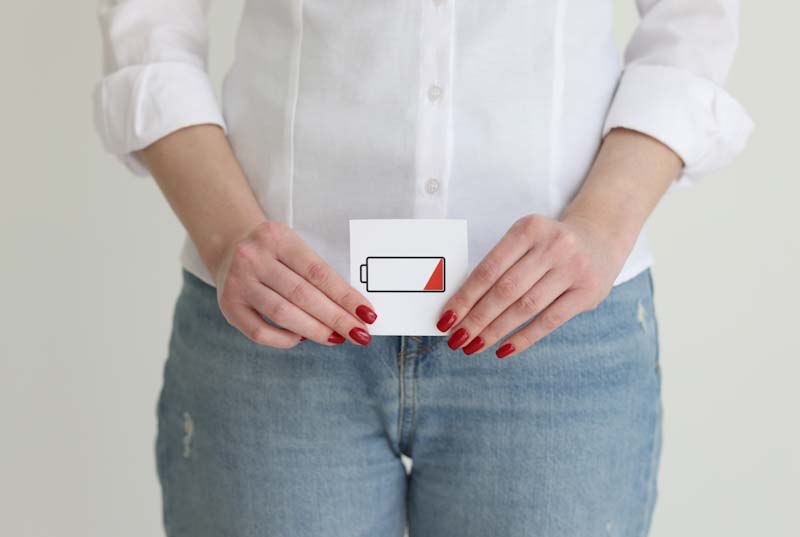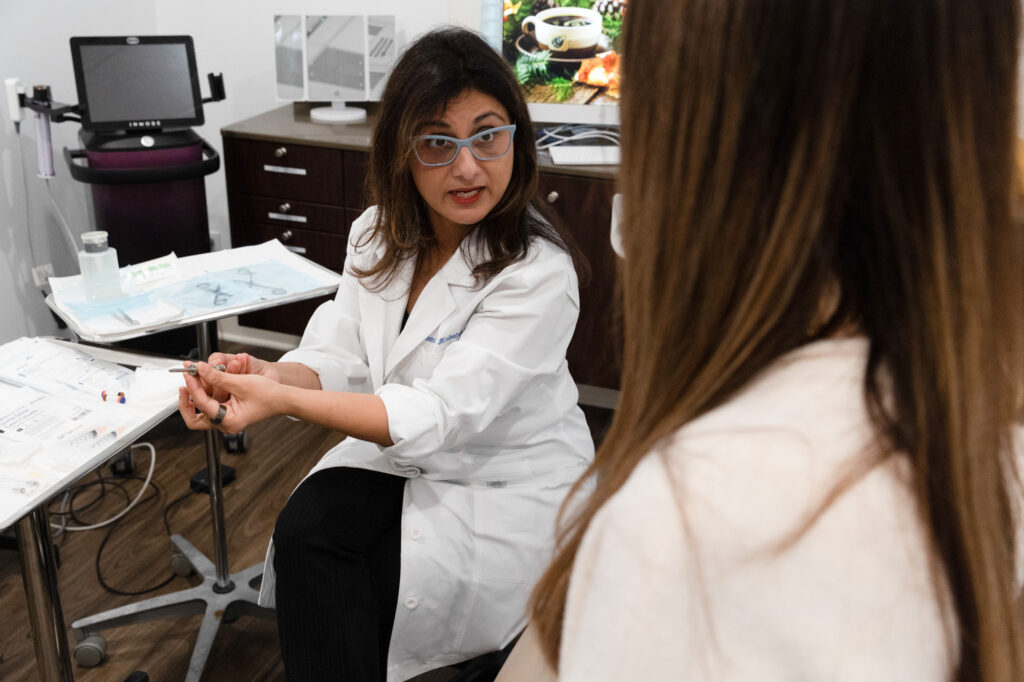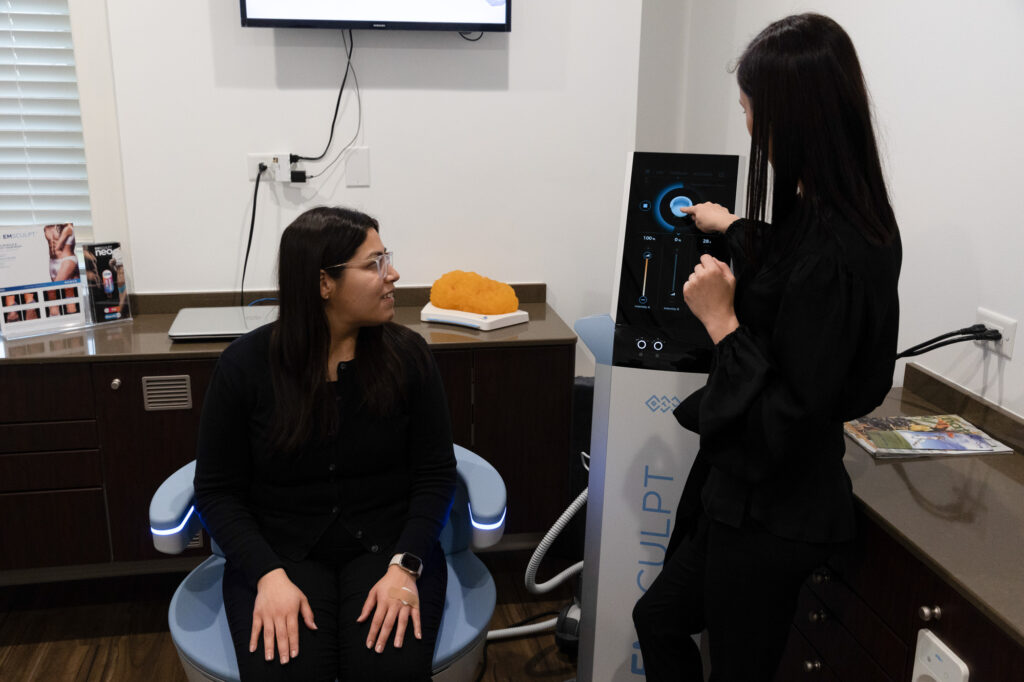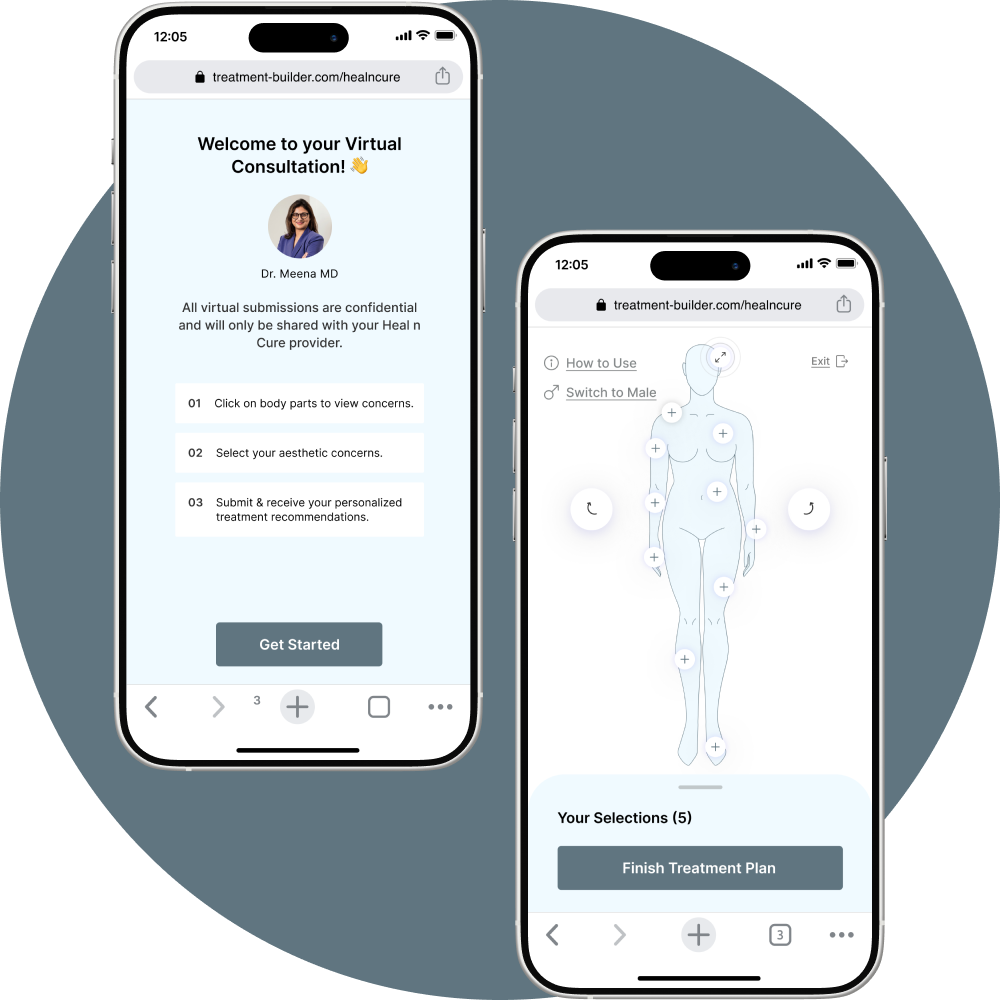
Low libido treatment in Chicago - Heal n Cure Medical Wellness Center
Experiencing a downturn in sexual desire can feel isolating, but it’s important to remember that you’re not alone. In fact, many of us silently grapple with these feelings at one point or another.
Our diligent exploration into this sensitive topic has unveiled that low libido is more common than most people think. In this article, we’ll look into the complexities surrounding reduced sexual appetite—examining potential low libido causes, recognizing symptoms, and exploring effective low libido treatment thereafter.
What is Low Libido?
When we talk about low libido, we’re referring to a decrease in sexual desire that can affect anyone at any stage of life. It’s not an uncommon condition—statistics show that it touches the lives of many individuals across the globe, impacting both personal well-being and intimate relationships.
Definition
Low libido means not wanting sex as much as you used to. It’s also called a decreased sex drive. Many people face this issue, but they don’t always talk about it. We understand that decreased libido in females and males can be tough and confusing. Everyone’s sex drive is different, and it changes over time. Some folks hardly ever want sex, while others think about it a lot. If your desire for sex has dropped and it bothers you, there might be something going on that needs attention or low libido cure
Statistics on prevalence
Understanding the scope of low libido helps us address the issue with the attention it deserves. We’re particularly concerned with how often this condition affects individuals and populations. Let’s look at the prevalence rates among different groups.
| Group | Prevalence of Low Sexual Desire |
| General Population | 10% to 46% |
| Premenopausal Women | 26.7% |
| Naturally Menopausal Women | 52.4% |
These numbers point to a significant concern for many. They remind us of the need for comprehensive solutions for low libido treatment. Whether it’s through hormone replacement therapy, lifestyle changes, or other low libido treatment, we are here to support and guide those affected in their journey towards improved sexual health and well-being for low libido cure
Causes of Low Libido
Understanding what’s behind a dip in sexual desire can be complex, as it’s often a mix of physical and emotional factors that play into decreased low libido in males and females. It might stem from hormonal imbalances or the stress we carry home from work – regardless, pinning down the cause is key to finding the right low libido treatment.
Physical causes
We know how frustrating it can be to experience low libido. It often feels confusing and upsetting. Let’s explore physical causes that can lead to low libido in males and low libido in females:
- Hormone Changes: Our bodies rely on a balance of hormones like testosterone, estrogen, and progesterone for a healthy libido. If these are off, our desire for sex can drop.
- Chronic Illness: Diseases such as diabetes or high blood pressure can harm our sex drive. They make the body tired and affect blood flow.
- Restless Legs Syndrome (RLS): This condition gives us a strong need to move our legs while resting. It links to an imbalance in brain chemicals that might also impact sexual desire leading to low libido.
Psychological causes
Our minds play a huge role in our sexual desire. Feelings like stress, relationship problems, and depression can lead to low libido.
- Stress and sex drive are deeply connected. When we’re stressed, our bodies release cortisol which can reduce hormone levels linked to sex drive.
- Long – term stress makes it hard to relax and be in the mood. It’s tough to think about intimacy when your mind is full of worries.
- Relationship issues are major sex drive killers. Feeling close and trusting your partner is key for a healthy libido.
- Fights, lack of communication, or betrayal can all turn off the desire for intimacy leading to low libido
- Depression hits libido hard by sapping energy and joy. Feeling sad or hopeless doesn’t leave room for sexual interest.
- Low self – esteem from depression also makes us feel less attractive and unworthy of affection.
- Physical fatigue from depression means even if the mind is willing, the body may not be up for sexual activity.
Medication and substance use
We know that some medications can lower sex drive. Substance misuse also leads to decreased low libido in males and females
- Anxiety and depression drugs: Medications for treating these conditions, like paroxetine and fluoxetine, often decrease sexual desire in men.
- Delayed reaction: The same medications can slow down orgasm, making it hard to enjoy sex.
- Drug misuse: Using drugs in ways they’re not meant to be used can lead to a drop in sex drive for both men and women.
- Alcohol abuse: Drinking too much is linked to a lower appetite for sexual activity.
- Stress impact: Medicines that fight stress sometimes make your libido take a nosedive.
- Sleep relation: Not getting enough sleep can affect how much you desire sex, especially when medication is involved.
- Overall health effects: Drugs taken for other health issues might unexpectedly reduce your interest in intimacy.
- Balance is key: Using any substance more than you should could mean trouble for your sexual health.
Age-related changes
Our bodies change as we get older. In women, estrogen and testosterone levels drop during menopause. This can lead to decreased low libido in females i.e. less interest in sex and make it uncomfortable. Sex might hurt because of vaginal dryness.
For men over 40, testosterone levels tend to go down. This decreased low libido in males can also cause a lower sex drive.
Getting older often brings changes that affect how much we want sex. Hormones play a big part in this for both women and men. It’s normal for our interests in activities, including intimacy, to shift with age. But treatment for low libido in males and treatment for low libido in females are also available if these changes bother someone or their partner.
Symptoms of Low Libido
When we talk about low libido, it’s important to recognize the signs — your body might be sending subtle cues. Think of it as your inner whisper, suggesting something is off balance; you may notice a waning interest in sexual activities or find that getting aroused feels more challenging than usual.
Decreased sexual desire
We can feel worried or confused if we notice our sexual desire isn’t what it used to be. It’s a usual sign of low libido, and many things might cause it. Sometimes we’re just tired or stressed from our day-to-day lives.
Relationship issues may affect our interest in sex too. If we’re not getting enough sleep or dealing with health problems, these could also make us less interested in sex. Our bodies change as we get older, especially during menopause for women and due to dropping testosterone levels in men. These hormonal shifts play a big role in sexual desire. Feeling depressed can lower our sex drive significantly too. We understand it’s tough when you don’t feel like yourself, but recognizing these symptoms is the first step toward finding help and improving your well-being.
Difficulty becoming aroused
Many of us find it hard to get aroused, and it’s not uncommon. This trouble can come from painful sex, vaginal dryness, or even difficulty reaching orgasm. It might be due to illnesses or changes in our bodies. Sometimes the medications we take play a part too. To help with arousal problems, doctors often look at medical conditions first. They may suggest hormone therapy if that’s the cause. Stress management and counseling are also powerful tools for improving this issue. With care and attention, overcoming these challenges is possible.
Disinterest in sexual activities
We notice how tough it can be when someone doesn’t want to take part in sexual activities. It’s a common sign of low libido. For some, the thought of sex just doesn’t spark excitement anymore. This might hurt relationships and personal wellbeing. Feeling disconnected from sexual desires can come from various issues. Hormone changes, pain during sex, or other health problems play big roles for many people. We understand these challenges and strive to offer solutions for those facing disinterest in their intimate lives.
Discover treatments to cure low libido and revitalize your passion. At Heal n Cure Wellness Clinic, our comprehensive approach addresses low libido in both males and females, offering effective solutions for a fulfilling intimate life.



